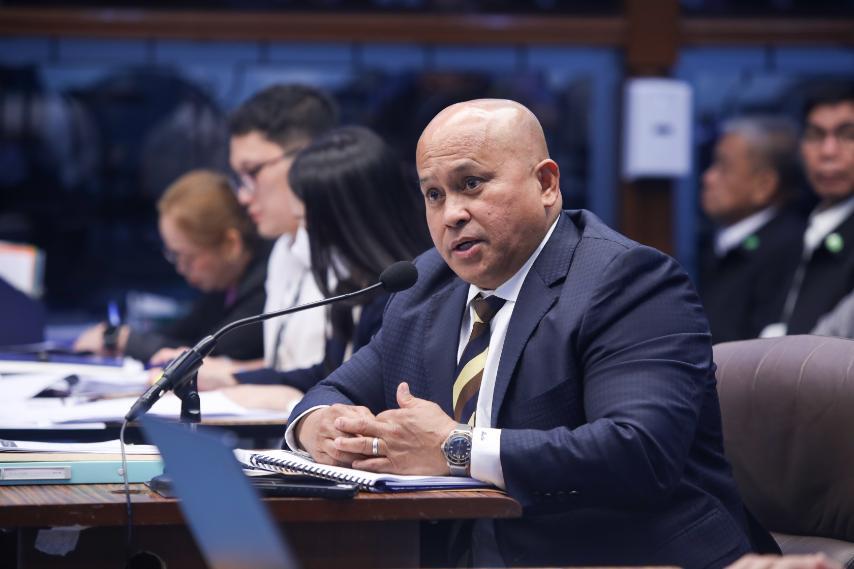Dela Rosa backs amnesty for CPP-NPA-NDF

Senator Ronald “Bato” dela Rosa on Tuesday welcomed the granting of amnesty to rebels, including former members of the Communist Party of the Philippines-New People’s Army-National Democratic Front (CPP-NPA-NDF).
“I am very supportive of that. I'm sure it will bring lasting peace lalong lalo na don sa amin sa (especially in) Mindanao,” Dela Rosa said in an interview with reporters.
“Yan ang nagiging roadblock sa iba na gusto talagang bumaba. Ayaw nila bumaba dahil may pending case sila. Bababa man sila para mag-reunite sa pamilya, di rin sila ma-reunite dahil pupunta sila sa kulungan dahil may pending warrant of arrest. Maganda yan. I appreciate that effort,” he added.
(That has become a roadblock to those who want to go to their families but couldn’t reunite with their loved ones because they have pending warrants of arrest. That’s a good move. I appreciate that effort.)
Last week, the Presidential Communications Office announced that the following groups have been granted amnesty under Proclamation Nos. 403, 404, 405 and 406, respectively:
- Rebolusyonaryong Partido ng Manggagawa ng Pilipinas/Revolutionary Proletarian Army/Alex Boncayao Brigade (RPMP-RPA-ABB)
- Communist Party of the Philippines-New People’s Army-National Democratic Front (CPP-NPA-NDF)
- Moro Islamic Liberation Front (MILF)
- Moro National Liberation Front (MNLF)
The amnesty was granted "to encourage them (rebels) to return to the folds of law," the PCO said.
According to PCO, amnesty is granted to former CPP-NPA-NDF members, or their front organizations that committed crimes whether punishable under the Revised Penal Code or special penal laws, including but not limited to rebellion or insurrection; conspiracy and proposal to commit rebellion or insurrection; disloyalty of public officers or employees; inciting to rebellion or insurrection; sedition; conspiracy to commit sedition; and inciting to sedition.
Other offenses also include illegal assembly; illegal association; direct assault; indirect assault; resistance and disobedience to a person in authority or the agents of such person; tumults and other disturbances of public order; unlawful use of means of publication and unlawful utterances; alarms and scandals; illegal possession of firearms, ammunition or explosives, provided that these crimes or offense were committed in furtherance of, incident to, or in connection with the crimes of rebellion or insurrection.
Also covered are those charged, detained or convicted of common crimes but who can establish by substantial evidence that they have actually committed said crimes in pursuit of political beliefs.
However, the amnesty under the new proclamations does not cover the offenses of kidnap for ransom, massacre, rape, terrorism, crimes committed against chastity, and illegal drugs.
Other exceptions are grave violations of the Geneva Convention of 1949, genocide, crimes against humanity, war crimes, torture, enforced disappearances, and other gross violations of human rights.
On Tuesday, Presidential Adviser on Peace, Reconciliation, and Unity Secretary Carlito Galvez Jr. also announced that the Philippine government and the National Democratic Front of the Philippines have agreed to "a principled and peaceful resolution of the armed conflict."
Asked if it will be a resumption of peace negotiations, Galvez said, "We will start anew... from the start talaga.''
Galvez is also optimistic about the relations of the government and the NDFP under the Marcos administration. —VAL, GMA Integrated News




